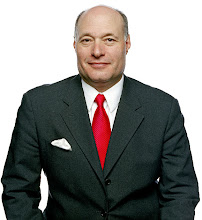By Marjorie Censer
Monday, January 3, 2011
Fuad El-Hibri has lived in all sorts of exotic locales, working for Citicorp in Saudi Arabia, consulting for Booz Allen Hamilton in Indonesia and establishing mobile telecommunications businesses in Russia, Venezuela and El Salvador.
But getting started in his current position as chief executive of Rockville-based pharmaceutical company Emergent BioSolutions took him to a far more mundane location. It was at a public auction in Lansing, Mich., in 1998 that El-Hibri offered a $25 million package of cash and commitments to privatize a government facility that was producing an anthrax vaccine.
Since then, he’s built what is now known as Emergent into a local pharmaceutical company that posted earnings of $31.1 million last year.
El-Hibri took an unusual path into the industry, spending much of his career in telecommunications. Born to a Lebanese father and German mother, he split his childhood between Lebanon and Germany before attending Stanford University. El-Hibri quickly moved on to a graduate degree, heading to Yale’s business school.
Though he wanted to start his own business, El-Hibri wanted to gain experience first. After marrying, he and his wife moved to Saudi Arabia so El-Hibri could work for Citicorp. After several years, he moved to consulting giant Booz Allen Hamilton and spent about three years in Jakarta, Indonesia. In one instance, he helped a state-owned petroleum company in Malaysia open up mini-convenience stores alongside its gas stations.
By the late 1980s, El-Hibri was ready to return to the United States, where he opened his own Potomac-based consulting firm. He quickly began working with the Moscow City Telephone Network and helped the company build and implement a mobile telecommunications network that’s still in use today. Partnering with his father — who had worked in telecommunications — El-Hibri eventually sold his interest in the firm and reinvested in a Venezuelan mobile network. He repeated the work in El Salvador.
What made El-Hibri different from other entrepreneurs was his interest in not just making money but also integrating the business into the local economy, said Brian Kim, whose company invested with El-Hibri in both his Venezuelan and El Salvadoran enterprises.
“He had a real sense that the company had [to do] something else — other than creating value for its shareholders,” Kim said. “He took a very local approach.”
Not long after, El-Hibri got involved with a business venture to sell $50 million worth of anthrax vaccine to the Saudi Arabian government, which was worried about its troops. He immediately took an interest in the field, and, after leading a management buyout of a biotechnology firm in Britain, El-Hibri set out to purchase the only facility producing a Food and Drug Administration-licensed anthrax vaccine in the United States.
He headed to Lansing, where the governor had announced the state would privatize its facility, which also had a licensed rabies vaccine, among others. El-Hibri and his partners submitted the winning bid and began renovating the facility, which was relicensed in 2001.
Emergent, which has its corporate headquarters in Rockville, soon added locations, which now extend from Seattle to Munich to Singapore. Best known for its anthrax vaccine, for which it received in July a contract worth up to $107 million, Emergent is also working on a pandemic flu vaccine and a tuberculosis vaccine.
The most recent contract, from the Department of Health and Human Services Office of the Biomedical Advanced Research and Development Authority, is meant to ready the vaccine for large-scale manufacture.
But El-Hibri doesn’t plan to end his career with pharmaceuticals and said he’d next like to work in the environmental field. (In 2001, El-Hibri launched the El-Hibri Charitable Foundation, which focuses on interfaith dialogue and peace education.)
Roberto Smith-Perera, a former minister of transport and communications in Venezuela who partnered with El-Hibri on both the Venezuelan and El Salvadoran cellular businesses, credited El-Hibri’s geographically and culturally diverse background with teaching him how to handle virtually any kind of business.
He’s the kind of person “that specializes in not . . . being a specialist,” said Smith-Perera. “He’s the ultimate project developer.”
Reprinted from the January 3, 2011 edition of The Washington Post
